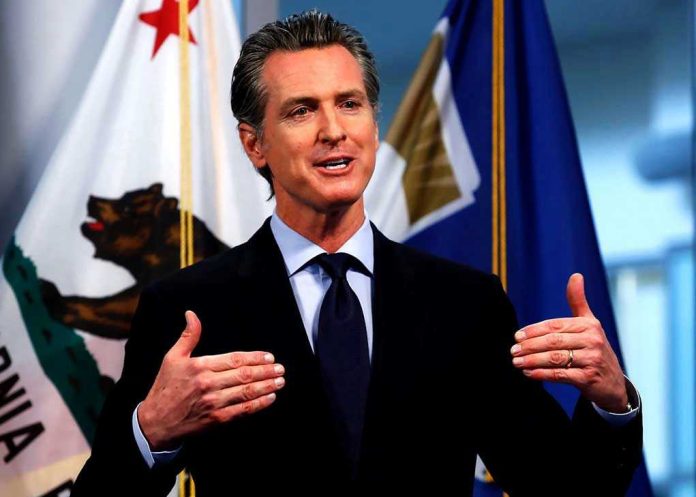
California Governor Gavin Newsom just handed Big Tech a massive victory by vetoing legislation that would have held social media giants accountable for algorithms that deliberately amplify violent threats against Americans.
Story Snapshot
- Newsom vetoed Senate Bill 771, protecting Meta, Google, and X from lawsuits over algorithm-driven threats
- Bill would have imposed penalties up to $1 million per threat for platforms intentionally promoting criminal content
- California’s Democrat-controlled legislature passed the bill by wide margins in September 2025
- Tech industry lobbying succeeded despite growing concerns about online harassment targeting vulnerable communities
Newsom Shields Tech Giants From Accountability
Governor Newsom’s October 13 veto of Senate Bill 771 represents a stunning capitulation to Silicon Valley’s influence over California politics. The legislation would have allowed victims of online threats to sue major social media platforms when their algorithms intentionally or recklessly promoted criminal harassment. Instead of protecting citizens from algorithmic manipulation designed to amplify dangerous content, Newsom sided with corporate interests claiming the bill was “premature.”
Massive Financial Stakes Behind the Veto
The vetoed legislation carried serious financial consequences for tech companies, with penalties reaching $1 million per threat for intentional violations and $500,000 for reckless promotion of criminal content. These substantial penalties would have targeted platforms like Meta, Google, and X specifically for their algorithmic choices, not just user-generated content. The Computer and Communications Industry Association opposed the bill, warning it would “stifle free expression” and encourage “frivolous lawsuits” against their members.
The bill’s broad legislative support demonstrated California lawmakers’ recognition that existing laws inadequately address how algorithms deliberately push users toward extremist content. Susan Tuchman of the Zionist Organization of America noted that algorithms actively “steer users toward extremist views,” creating real safety threats for targeted communities. However, tech industry pressure ultimately prevailed over public safety concerns.
Free Speech Concerns Versus Government Overreach
While supporters framed the legislation as necessary protection against algorithm-driven harassment, the bill raised legitimate concerns about government control over online expression. The California State Assembly Republican Caucus opposed the measure, with George Andrews warning against excessive government control over online speech. This concern reflects broader conservative principles about limiting government interference in private business operations and protecting First Amendment rights.
The Council on American-Islamic Relations also opposed the bill, fearing misuse to suppress legitimate political criticism. This unusual alliance between conservatives and some advocacy groups highlighted the complex balance between protecting vulnerable communities and preserving fundamental speech rights. Jonathan Hofer of the Independent Institute called the veto unsurprising, noting Newsom’s pattern of rejecting redundant legislation.
Political Calculations Override Public Safety
Newsom’s decision reveals the overwhelming influence of California’s tech industry on state politics, even under Democratic leadership. Despite the legislature’s strong bipartisan support for holding platforms accountable, the governor prioritized industry concerns over constituent safety. Jessica Heldman of the Children’s Advocacy Institute called the veto “a setback for child and adult safety online” and urged renewed legislative efforts before Newsom leaves office.
This outcome demonstrates how corporate lobbying can override democratic processes, even when legislation addresses genuine public safety concerns. The veto ensures that social media algorithms can continue promoting threatening content without legal consequences, leaving victims with limited recourse against platforms that profit from engagement-driving controversy. Patriots concerned about government accountability should note how easily corporate interests can influence elected officials to abandon their duty to protect citizens from algorithmic manipulation.
Sources:
Gavin Newsom vetoes California bill allowing social media companies to be sued for users’ threats
Newsom vetoes AI child protection bill amid tech industry opposition



